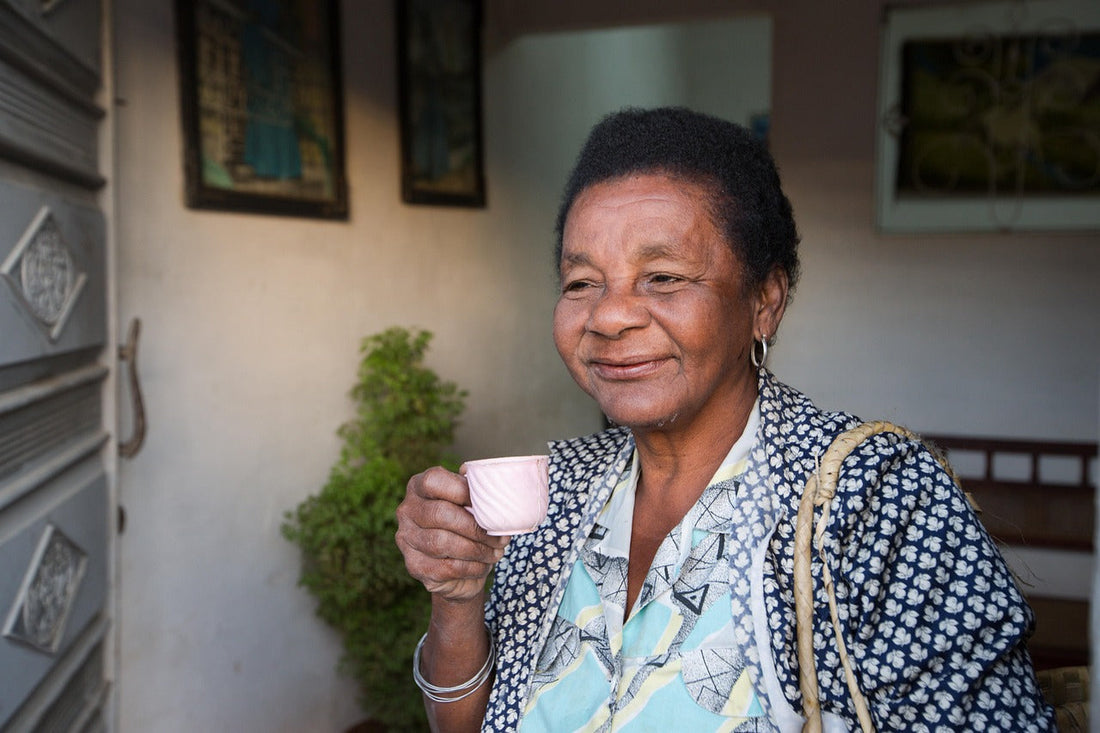
25 Cuban Phrases to Navigate Everyday Life on the Island
Share
Traveling to Cuba or speaking with Cubans can be a unique linguistic experience. Cuban Spanish is filled with colorful expressions and idioms that make daily conversations rich and dynamic. If you want to blend in and communicate effectively on the island, learning these 25 essential Cuban phrases will be incredibly useful!
From casual greetings to expressions for food, travel, and social interactions, this guide will help you navigate everyday life in Cuba like a local. Mastering these phrases also opens a deeper connection to Cuban culture, known for its humor, resilience, and musicality.
Cuba is more than a destination—it's a living, breathing storybook of language and culture. By understanding these expressions, you step closer to embracing the rhythm, laughter, and everyday wisdom that Cubans live by.
Essential Greetings and Everyday Expressions
1. ¡Asere, qué bolá!
A friendly and informal way to say “Hey, what’s up?” Used among close friends. This phrase captures the Cuban spirit of camaraderie and is almost a linguistic passport to sounding local. Imagine greeting your Cuban friends with a smile and this phrase—they'll instantly feel your vibe! It's also a powerful icebreaker when meeting new people.
2. Dale
Equivalent to “Okay,” “Let’s go,” or even “Alright.” Often used at the end of conversations to show agreement or enthusiasm. It's commonly heard when friends agree to plans or when motivating someone to take action.
3. ¿Qué bolero?
Another way to ask “How’s it going?” derived from Cuba’s famous bolero music, carrying a lyrical and nostalgic tone that adds depth to a casual greeting.
4. Chao pescao
A playful way to say “Goodbye.” Often humorously followed by "y a la vuelta picadillo," it reflects the Cuban love for rhyme and wit in everyday speech.
5. No cojas lucha
“Don’t stress out” or “Don’t worry about it.” A reflection of the laid-back Cuban attitude toward life's daily challenges, encouraging resilience and positivity.
Want to Sound More Natural in Cuban Spanish?
If you love learning new Spanish expressions, why not take your skills to the next level? Short Stories in Cuban Spanish will immerse you in real-life conversations, helping you master Cuban slang and culture through engaging storytelling.
Through these stories, you'll not only master vocabulary but also experience the attitudes, humor, and traditions that shape Cuban daily life. It's the perfect way to build your fluency while enjoying Cuba's vibrant culture.
Navigating Food and Restaurants

6. Estoy jamando
“I’m eating.” Derived from “jamar,” Cuban slang for eating. In a country where meals often bring people together, "jamar" is a word filled with community and enjoyment.
7. Me pones un poquito más
“Can you give me a little more?” Essential when enjoying home-cooked meals or visiting local food stalls, where a little friendliness can go a long way.
8. Esto está en candela
“This is spicy” or “This is intense.” Beyond food, it describes hot, dangerous, or exciting situations, reflecting the colorful way Cubans describe life's ups and downs.
9. Tengo el tanque vacío
“I’m starving.” Literally, "my tank is empty." It’s a humorous expression used when hunger hits hard, often prompting communal meals or street snacks.
10. Un cortadito, por favor
Requesting a beloved Cuban coffee—small, strong, and sweet. Sharing a cortadito is a ritual of hospitality, conversation, and cultural pride across the island.
Transportation and Getting Around
11. ¿Cuánto cuesta el pasaje?
“How much is the fare?” Vital for negotiating taxi rides or catching a guagua (bus). Always confirm the price first to avoid confusion!
12. Voy echando
“I’m leaving.” A casual way to announce departure, often said with a smile and wave among friends and family.
13. Ese carro está en las últimas
“That car is about to break down.” A common joke about the classic cars still roaming Cuban streets, symbols of resilience and ingenuity.
14. Voy en botella
“I’m hitchhiking.” A normal part of life due to transportation shortages. Hitchhiking is common and generally safe among locals.
15. Para aquí, por favor
“Stop here, please.” An indispensable phrase when traveling by shared taxi or local bus, ensuring you get dropped exactly where you need to be.

Social and Cultural Expressions
16. Ese es mi socio
“That’s my buddy.” Highlights the central importance of friendship and trust in Cuban society.
17. Formamos tremendo rumbón
“We threw a huge party.” Music, dance, and vibrant celebrations define Cuban social life—rumbones are unforgettable!
18. Está en talla
“It’s perfect” or “It’s just right.” Used to praise anything from a friend's outfit to a perfectly cooked meal.
19. Se formó
“It’s on!” The phrase for when events, fights, or parties erupt into action, signaling something exciting has begun.
20. ¿Qué hay pa’ hoy?
“What’s the plan for today?” Captures Cuba's spontaneous social life, where plans are made and changed on the go.
Dealing with Money and Shopping
21. ¿Cuánto es lo último?
“What’s the best price?” Essential when bargaining in Cuban markets, a daily ritual that blends commerce and conversation.
22. Eso está en talla
“That’s fair.” A simple but effective way to finalize a friendly deal or purchase without offense.
23. No tengo fulas
“I don’t have dollars.” Fulas refer to foreign currency. In Cuba's dual economy, managing currencies is part of everyday life.
24. Voy a hacer un bisne
“I’m going to do some business.” Reflects the entrepreneurial spirit found everywhere from Havana’s streets to the countryside.
25. Me fajé con el precio
“I haggled over the price.” Bargaining is an expected and respected skill when shopping locally in Cuba.
Master Cuban Spanish with Fun and Engaging Stories!
Now that you’ve learned these essential Cuban Spanish phrases, why not reinforce them through engaging storytelling? Short Stories in Cuban Spanish helps learners absorb slang, idioms, and cultural nuances naturally, making language learning both effective and enjoyable.
Each story places you inside real Cuban settings—from lively city streets to serene beaches—teaching you the language Cubans actually speak every day.

Understanding Cuban Humor and Double Meanings
Humor is the soul of Cuban Spanish. Many expressions carry double meanings, puns, or playful exaggerations. Cubans often use humor to cope with daily struggles, turning even the most challenging situations into a reason for laughter. Understanding the double meanings behind many expressions will not only help you comprehend conversations but also allow you to participate and bond more naturally with locals. Remember, in Cuba, a clever play on words is always appreciated!
Conclusion
Mastering these 25 Cuban Spanish phrases will transform your experience on the island. Beyond words, they carry the laughter, resilience, and warmth of Cuban people. Whether you’re visiting, chatting with Cuban friends, or just fascinated by this lively Spanish variety, these expressions will help you connect authentically.
By speaking Cuban Spanish, you aren't just learning a dialect; you're stepping into a world of music, ingenuity, and indomitable spirit. Start practicing today and let your Spanish dance to the rhythm of Cuba! And remember: the best way to master Cuban Spanish is to live it—with a smile, a “dale,” and a “qué bolá, asere.”
Ready to dive deeper? Explore Short Stories in Cuban Spanish and continue your journey into one of the liveliest varieties of Spanish in the world!
